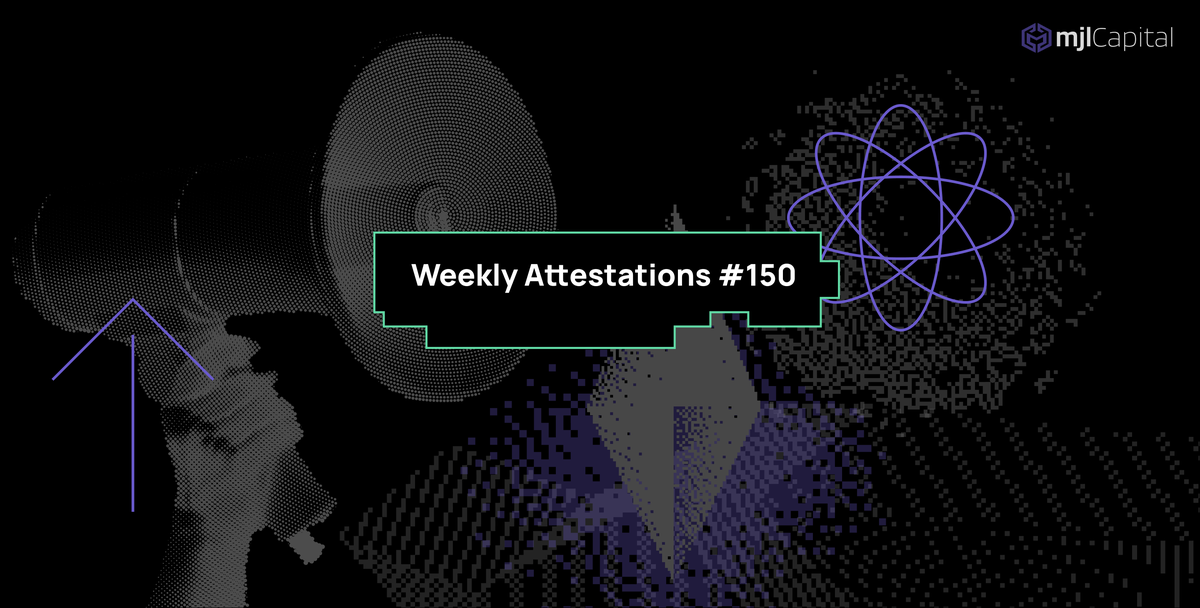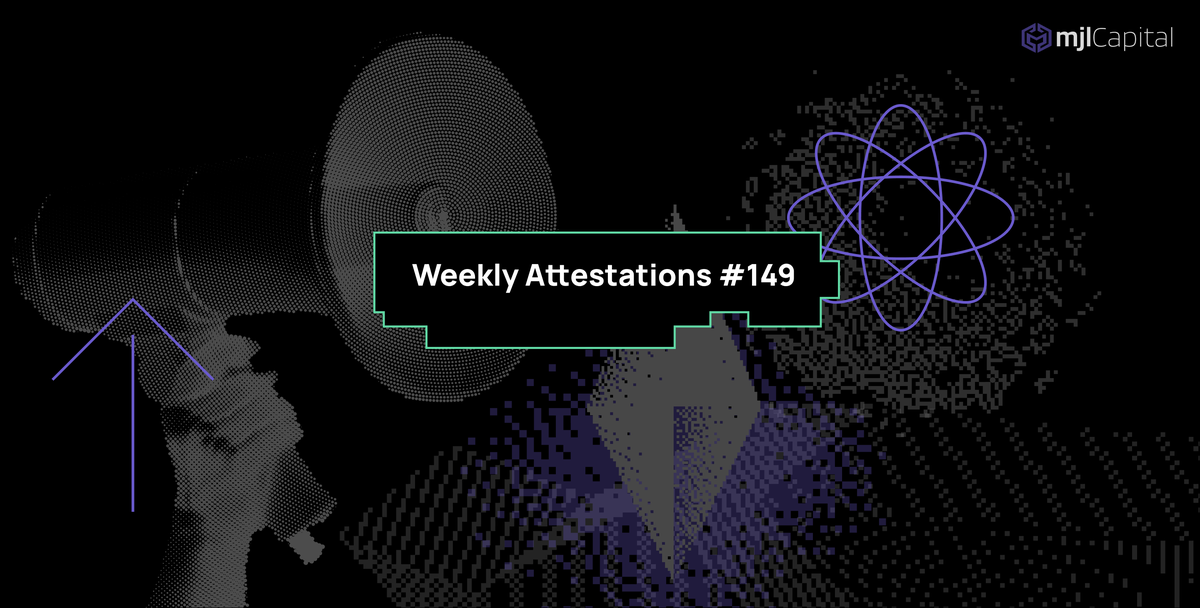Token Specific News
Vitalik Buterin Urges Developers to Focus on Ethereum's Post-Dencun Upgrade Era
Vitalik Buterin, Ethereum's co-founder, encouraged developers to prioritize building applications for millions of users following the activation of the Dencun upgrade. This upgrade, which reduced fees by up to 95% on Layer 2 networks supporting EIP-4844, marked a significant milestone. Buterin emphasized Dencun as Ethereum's most significant upgrade since The Merge. With lower fees on Layer 2 networks, Buterin challenged developers to create non-financial applications. He highlighted Ethereum's evolution beyond a financial ecosystem, urging developers to target mainstream use cases. However, Buterin stressed the need for further development on Layer 2 networks to enhance scalability and security. He called for stricter standards for decentralization in the ecosystem and mentioned Ethereum's ongoing work on Layer 1 scaling, including the upcoming introduction of Verkle Trees with the Pectra fork.
The DEX Promise: A New Frontier
The promise of cryptocurrency initially centered on decentralization, aiming to redefine ownership and governance models to harness the internet's full potential. Bitcoin pioneered decentralized money, garnering widespread adoption. The emergence of smart contract platforms like Ethereum furthered this vision, boasting millions of users and extensive activity. Now, decentralized exchanges (DEXs) represent a significant innovation and adoption area. Platforms like Uniswap, with over 2.5 million monthly users, facilitate billions in transactions, notably on Coinbase's Base blockchain. Coinbase's foray into decentralization aligns with regulatory pressures and profit motives. ShapeShift's successful transition to a decentralized front-end for DEXs highlights this trend. These DEXs witness substantial trading volumes, leveraging underlying blockchains as essential infrastructure. While victory remains uncertain, the surge in decentralization adoption beyond Bitcoin and smart contracts indicates progress towards crypto's decentralization promise. Continued momentum could bring this promise closer to fruition, marking a pivotal evolution in the crypto landscape.

Source: Dune
Solana Struggles with 75% Transaction Failure Rate Amid Bot-Dominated Trading
Solana, known for its high-speed blockchain, is facing a significant challenge as 75.3% of non-vote transactions failed on April 4 due to network congestion. Critics questioned Solana's scalability claims, highlighting its struggles during periods of high usage. Meanwhile, proponents argued that the surge in unique users and trading volumes, largely driven by memecoin hype, was a natural part of growth. Bots, responsible for a significant portion of trading activity, exacerbated the congestion issue by spamming the network, leading to failed transactions. With bots dominating swap counts, concerns persist about Solana's ability to handle increased transaction volumes effectively.

Source: Dune
Advancements in Bitcoin's Layer 2 Solutions
Traditionally viewed as a digital store of value, Bitcoin is witnessing a shift in perception as Layer 2 solutions like Ordinals, Inscriptions, and BitVM enhance its utility. These developments enable token creation, trading, and off-chain computation, challenging the dominance of smart contract-enabled blockchains. While Bitcoin's cautious upgrade strategy poses challenges, projects like Babylon and BitVM aim to diversify its applications, attracting significant interest. Despite facing competition from other Layer 1 ecosystems, Bitcoin's scaling initiatives and strategic partnerships signal potential for growth. However, questions linger regarding its ability to match the versatility of other ecosystems and its pace of development. Nevertheless, initiatives like Babylon highlight a strategic direction towards shared security, underscoring Bitcoin's potential to evolve into a centralized hub for various applications. The ongoing development aims to unlock BTC's financialization and utility, catering to both speculative and utility-driven demands. Despite challenges, the growing interest in infrastructure and applications on Bitcoin signifies a transformative phase, albeit with limitations inherent in its protocols.

Source: Messari
Bitcoin Miners Brace for Halving as Costs Surge and Industry Consolidates
With the impending quadrennial Bitcoin halving just days away, miners are strategizing to mitigate the impact of reduced block rewards, halving from 6.25 BTC to 3.125 BTC. Despite record profits of approximately $78 million per day in 2024, the anticipated rise in mining costs, projected to exceed $40,000 post-halving, poses challenges for smaller operators. Larger miners like Marathon Digital and CleanSpark are bolstering their operations by acquiring new facilities in Texas, Nebraska, and Mississippi, while Bitfarms ventures into Paraguay for access to renewable hydropower. Amidst this landscape, smaller firms seek locations with cheaper power but must consider the reliability of electrical grids. Industry consolidation is evident, with companies like Hut 8 Mining and Hive Digital Technologies diversifying into infrastructure for AI applications, mirroring strategies seen in the broader technological landscape.
MakerDAO's Addition of Ethena's USDe Sparks Controversy in DeFi Sector
MakerDAO's decision to incorporate Ethena's USDe 'synthetic dollar' into its collateral basket as part of its Endgame overhaul has triggered a backlash from DeFi projects. The move, which allows borrowing against USDe and sUSDe with a debt ceiling of $100 million DAI, has raised concerns about risk management and centralized exchanges holding collateral assets. Aave's Initiative's Marc Zeller proposed revoking DAI's collateral status on Aave, citing MakerDAO's unpredictability. Nostra Finance founder David Garai expressed skepticism, fearing insolvency risks in a bear market. Despite controversy, Ethena Labs' architecture, collateralized with staked Ethereum and hedged futures positions, has garnered praise.
Regulation
The Implications of Crypto's No-KYC Policy
The indictment against KuCoin underscores the scrutiny facing cryptocurrency exchanges with no-KYC policies. While critics argue such policies facilitate money laundering, traditional AML/KYC regulations in banking also face criticism for their ineffectiveness. Despite stringent regulations, money laundering through the global banking system remains pervasive. KuCoin's case highlights the challenges of balancing security and privacy in financial transactions. While KYC measures aim to prevent crime, they also expose individuals to identity theft risks. Cryptographic identity solutions offer a potential alternative, promoting traceability without compromising privacy. However, challenges persist in implementing such solutions. As regulators seek jurisdiction over stablecoins, the debate intensifies over the effectiveness of current AML regulations and the role of crypto in combating financial crime. See more: CFTC infringing on SEC's KuCoin case
Blackrock...
BlackRock's tokenized U.S. treasuries fund, BUIDL, attracted $244.8 million within its first week, becoming the second-largest fund in its category. This success elevates the tokenized treasuries market to a record-high market cap of over $876 million. BUIDL operates on Ethereum, offering instant settlement and transparency. BlackRock remains committed to introducing a spot Ether ETF despite regulatory uncertainties, showcasing institutional confidence in crypto. Analysts, however, remain cautious due to limited SEC engagement, though the industry continues to innovate, with firms planning ETH staking programs in anticipation of ETF approvals. See more: Ondo Finance To Deploy OUSG Assets In Blackrock’s BUIDL Fund
Visionary to Villain: Sam Bankman-24 Years-Fried
Sam Bankman-Fried, the crypto mogul behind FTX and Alameda Research, was sentenced to a maximum of 24.25 years in prison in a New York court, falling 15 years short of prosecutors' recommendation. He faces $11 billion in restitution, divided among customers, investors, and lenders. Despite being found guilty of seven criminal counts, including wire fraud and securities fraud, Bankman-Fried's sentence has sparked criticism for being insufficient. The judge recommended serving time in a medium or low-security prison near California's Bay Area, with his lawyer planning to file for a specific facility designation. See similar: FTX estate's $7.5 billion sale of locked solana attracts strong interest
DOJ Seized Bitcoin Wallet Sends $2 Billion to Coinbase Prime
A wallet linked to the U.S. Department of Justice, holding approximately $2 billion in seized bitcoin, has reportedly transferred 2,000 BTC to Coinbase Prime. The initial transaction involved a small amount of 0.001 BTC ($65) sent to a wallet associated with the institutional prime brokerage platform, with the bulk of the funds remaining in the original wallet. Subsequently, an additional 1,999.999 BTC ($131 million) was sent to the same Coinbase Prime deposit address, with the possibility of more transfers in the future. This activity follows a U.S. appeals court's decision to formalize the forfeiture of around 69,370 BTC and other crypto assets related to Silk Road, seized by the DOJ in 2020.
Other Domestic Regulation Updates
- Fidelity takes another step toward spot ether ETF, but hurdles likely remain
- Ark Invest's spot Bitcoin ETF becomes first to exceed the daily outflow of Grayscale's
- SEC asks for public comment on spot Ethereum ETFs
- Grayscale's actively managed proof-of-stake income fund
- U.S. Judge Rules SEC Lawsuit Against Coinbase Can Move Forward
Other International Regulation Updates
- Sam Bankman-Fried has been sentenced to 25 years in prison on 7 counts of fraud and conspiracy
- UK court freezes Craig Wright's assets
- Singapore Expands Rules to Include Custody, Transfers
- Indonesia: Crypto Products Must Pass Sandbox Testing to Get Licensed
Pain & Gain
Pain
- Bitcoin’s rally caused VCs to “aggressively return to crypto”
- Prisma Finance Suffers $12 Million Exploit
- Vitalik Buterin says there’s nothing ‘new and interesting’ about memecoins
- Crypto traders see over $400 million in liquidations as bitcoin slides below $65,000
Gain
- $15.2B IN QUARTERLY OPTIONS CONTRACTS ARE EXPIRING
- Pendle TVL Approaches $4 Billion On Airdrop Farming Demand
- DEGEN Launches Arbitrum Orbit-Based Layer 3 Chain
- Fetch, SingularityNET, and Ocean To Merge Assets and Forge Shared ‘Tokenomic Network’
- Degen Launch
Important Legal Notices
This reflects the views MJL Capital LLC (“MJL”), but it should in no way be construed to represent financial or investment advice. Nothing in this correspondence is intended to constitute or form part of, and should not be construed as, an issue for sale or subscription of, or solicitation of any offer or invitation to subscribe for, underwrite, or otherwise acquire or dispose of any security, including any interest in any private investment fund managed by MJL. Any such offer may only be made pursuant to a formal confidential private placement memorandum of any such fund, which may be furnished to potential investors upon request and which will contain important information to be considered in connection with any such investment, including risk factors associated with making any investment in any such fund. Further, nothing in this correspondence is, or is intended to be treated as, investment or tax advice. Each recipient should consult their own legal, tax and other professional advisors in connection with investment decisions.
Domenic Salvo is a Managing Partner at MJL Capital, helping lead Portfolio Research and Investor Relations.




